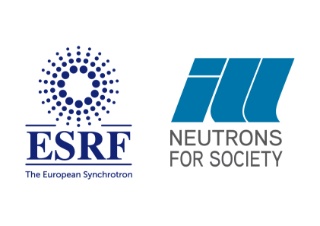Un événement imaginé par
Ingénieur·e·s logiciel / expert·e·s en traitement de données pour l'analyse de données de rayons X (F/H) - ESRF
Description
Context & Job description:
La modernisation de la source synchrotron de l'ESRF a entraîné une forte augmentation du flux et des volumes de données expérimentales, pour un large éventail de techniques expérimentales utilisant les rayons X, notamment la diffusion, la spectroscopie, la tomographie et les techniques d'imagerie cohérente. Tous ces domaines nécessitent des outils nouveaux ou améliorés pour le traitement et l'analyse des données expérimentales en ligne et hors ligne, adaptés à une large communauté d'utilisateurs.
spectroscopie : workflows et interfaces graphiques pour les techniques de spectroscopie des rayons X (XAS)
diffraction sur poudres et diffusion des rayons X aux petits angles : développement d'un outil pour l'analyse quantitative de grandes cartes de diffusion 1D à 4D
imagerie en champ sombre : amélioration du logiciel darfix existant et automatisation du traitement de grands ensembles de données
tomographie : traitement des données en ligne pour la tomographie en champ plein
imagerie par diffraction cohérente : développer des widgets et mettre en œuvre des workflows pour le traitement en ligne des données de CDI dans le régime des petits angles et de l'angle de Bragg.
cartographie des grains 3D: rationaliser les analyses de cartographie des grains 3D/4D multi-échelles pour les techniques 3DXRD et de tomographie par contraste de diffraction (DCT)
Chaque poste (d'une durée de 36 mois maximum) consistera à développer une suite d'outils dans l'un des domaines suivants de la science des rayons X :
Tous les développements seront réalisés en Python, en exploitant les logiciels existants (y compris les solutions de calcul haute performance) dans les domaines spécifiques (spectroscopie, diffusion, imagerie...), ainsi que des modules plus génériques (silx, ewoks,..) développés pour le traitement et la visualisation des données à l'ESRF.
Vous travaillerez au sein du groupe ADA (Algorithms & scientific Data Analysis) de la division Expériences, en étroite collaboration avec la Data Automation Unit (DAU) du Software Group et avec les lignes de lumières exploitant les différentes techniques. Pour plus d'informations sur le poste, veuillez contacter Vincent Favre-Nicolin (favre@esrf.fr).
Expected profile :
Vous êtes titulaire d'un diplôme universitaire supérieur (master ou diplôme équivalent à 300 ECTS) en biologie, physique, chimie, informatique, ingénierie, sciences ou dans un domaine similaire. Un doctorat serait un atout
Des compétences approfondies en programmation en Python et dans les bibliothèques de calcul scientifique sont obligatoires
La capacité à s'adapter à l'analyse de données expérimentales complexes est essentielle
Une expérience dans le domaine du traitement des données de rayons X dans l'un des domaines pertinents (spectroscopie, tomographie, diffusion, imagerie,…) est un atout majeur
Une connaissance du développement d'interfaces graphiques utilisant Python (notamment PyQt) serait appréciée
Une solide formation en sciences naturelles ou en mathématiques serait un plus
La curiosité et de bonnes aptitudes à la communication sont nécessaire afin que vous puissiez interagir avec des scientifiques de différentes techniques et lignes de lumière
Maîtrise de l'anglais (langue de travail à l'ESRF).
Expérience
Expérimenté
Thématique
Digital, software, IA
Localisation du poste
Isère (38)
Nombre de poste à pourvoir
3
Type d'emploi proposé
CDD
Temps de travail
Temps plein



